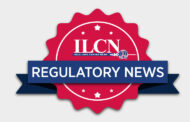Q: Please describe the surgical outcomes of the CheckMate-816 study.
Dr. Forde: Outcomes from surgery in CheckMate-816 were reported in detail by Dr. John Spicer and colleagues1
at the 2021 American Society of Clinical Oncology (ASCO) Annual Meeting. The addition of nivolumab to neoadjuvant chemotherapy did not appear to lead to any significant increase in toxicity around the time of surgery. Furthermore, there was no increase in 90-day surgical complication rates, an important metric of thoracic surgeries. The length of time needed for surgery was similar between the two arms; in fact, it was a little shorter in the nivolumab/chemotherapy arm. More patients who received nivolumab and chemotherapy, compared to chemotherapy alone, were able to undergo minimally invasive surgery rather than open thoracotomy. Of all patients who had minimally invasive surgery, fewer required a conversion to open surgery in the nivolumab/chemotherapy arm. So, across those different surgical metrics, nivolumab plus chemotherapy appeared to be at least as good as chemotherapy alone, if not better. What this highlights is that even when adding this checkpoint inhibitor to standard platinum-doublet chemotherapy in the neoadjuvant setting, we are not seeing increased toxicity. We may in fact be seeing better surgical outcomes for some patients.
Q: Will this change the landscape in terms of surgical considerations?
Dr. Forde: For stage IIIA disease, which represents 63% of the patients enrolled in CheckMate-816, the long-standing approach has been neoadjuvant therapy when possible. For that cohort of patients, I think the nivolumab/chemotherapy data are very encouraging, particularly the lower rates of pneumonectomy compared to chemotherapy alone. Looking solely at surgical outcomes, I think nivolumab/ chemotherapy is a very attractive option. Historically, we have only changed our standard of care for earlier-stage lung cancer when there is evidence of a disease-free survival or event-free survival benefit. We must follow up with the patients in CheckMate-816 for those primary outcomes. However, all of the initial data, the improvement in both pathologic complete response (pCR) and surgical outcomes, point toward a positive benefit from the addition of nivolumab to chemotherapy.
Q: What are the existing data regarding neoadjuvant and adjuvant chemotherapy in NSCLC?
Dr. Forde: There were many studies of adjuvant chemotherapy during the period from about 1990 to 2008. Some studies used platinum-doublet chemotherapy for three or four cycles post-operatively, and then several studies started to explore neoadjuvant therapy. The first adjuvant studies had positive results, and a later meta-analysis showed a survival benefit of about 5% at 5 years for patients who received platinum-based chemotherapy. At the time these adjuvant studies were analyzed, many of the neoadjuvant phase III trials were still accruing, and many of those studies were quickly stopped. However, there has since been a meta-analysis looking at neoadjuvant chemotherapy prior to surgery versus surgery alone. The benefit was shown to be very similar to adjuvant therapy, and many clinicians now consider them comparable. For patients who are known to have stage III disease prior to surgery,
particularly for patients with mediastinal lymph node involvement, neoadjuvant therapy is now recommended.
Q: What are the advantages of neoadjuvant chemotherapy?
Dr. Forde: Neoadjuvant chemotherapy provides a glimpse, at the time of surgery, of pathologic response—an early indication of how the tumor is responding to treatment. In addition, for patients who have a smoking history or reduced lung function, the period of time during which they receive neoadjuvant therapy allows for what we refer to as “prehabilitation”: pulmonary rehabilitation and other forms of work-up to increase their fitness for surgery.
Q: Are there advantages in using immunotherapy in the neoadjuvant setting compared to the adjuvant setting?
Dr. Forde: There is a theoretical benefit in adding any therapy to chemotherapy while the tumor is still present. The tumor acts almost as a vaccine for the immunotherapy, to heighten the immune response of cytotoxic T-cells. We are beginning to see this with other forms of cancer. At the 2021 ASCO Annual Meeting, promising data were reported regarding presurgical treatment with melanoma, as well as with triple-negative breast cancer, for which pembrolizumab had been added to standard chemotherapy in the neoadjuvant setting. So across tumor types, we are seeing some encouraging neoadjuvant data.
Q: Are there any early trials for that in lung cancer?
Dr. Forde: In 2018 we published a small study in the New England Journal of Medicine,2
in which we gave patients with stage I-IIIA lung cancer two doses of nivolumab over 1 month prior to surgery. Approximately 45% of the patients had a major pathologic response. Dr. Tina Cascone and colleagues3
have studied combination immune checkpoint blockade, and Dr. Mariano Provencio4
showed very high rates of pCR and good PFS data in a study of the combination of chemotherapy with a PD-1 inhibitor, in this case nivolumab. Dr. Catherine Ann Shu5
has shown good responses as well with atezolizumab plus chemotherapy. So there are several phase II studies that support the idea that neoadjuvant chemoimmunotherapy in particular may yield a benefit for patients.
Q: Would you discuss the correlation of pCR with long-term survival?
Dr. Forde: There are several studies that have been done retrospectively investigating a correlation between pCR and long-term outcomes, including event-free survival and OS. However, CheckMate-816 is this first phase III trial to assess pCR in a blinded fashion. The pathologists, who were an independent group, were blinded as to which arm of CheckMate-816 the specimens came from. This gives us the first truly unbiased report of pCR with chemotherapy alone and of what we are starting to see now with chemoimmunotherapy.
Q: Should there be special assessments of tissue following neoadjuvant immunotherapy?
Dr. Forde: There have been two main efforts toward standardizing the pathology reports and pathologic assessment of tissue after neoadjuvant immunotherapy. A paper published in the Annals of Oncology by Dr. Tricia Cottrell6
in 2018 looked at immune-related pathologic response criteria, which proposed criteria for assessing pathologic response. A separate collaboration between the IASLC and the U.S. Food and Drug Administration (FDA), published in the Journal of Thoracic Oncology, focused on assessments of major pathologic response after neoadjuvant immunotherapy. Those two methods have similar approaches. One of the advantages of pCR as an outcome measure is that it is binary—you either have residual tumor or you do not—as opposed to major pathologic response, for which you are trying to quantify the amount of residual tumor.
- 1. Spicer J, Wang C, Tanaka F, et al. Surgical outcomes from the phase 3 CheckMate 816 trial: Nivolumab (NIVO) + platinum-doublet chemotherapy (chemo) vs chemo alone as neoadjuvant treatment for patients with resectable non-small cell lung cancer (NSCLC). J Clin Oncol. 2021;39(15)(suppl):8503.
- 2. Forde PM, Chaft JE, Smith KN, et al. Neoadjuvant PD-1 Blockade in Resectable Lung Cancer. N Engl J Med. 2018;378:1976-1986.
- 3. 1. Cascone T, William W, Weissferdt A, et al. Neoadjuvant nivolumab or nivolumab plus ipilimumab in operable non-small cell lung cancer: the phase 2 randomized NEOSTAR trial. Nat Med. 2021;27(3):504-514.
- 4. 2. Provencio M, Nadal E, Insa A, et al. Neoadjuvant chemotherapy and nivolumab in resectable non-small-cell lung cancer (NADIM): an open-label, multicentre, single-arm, phase 2 trial. Lancet Oncol. 2020;21(11):1413-1422.
- 5. 3. Shu CA, Gainor JF, Awad MW, et al. Neoadjuvant atezolizumab and chemotherapy in patients with resectable non-small-cell lung cancer: an open-label, multicentre, single-arm, phase 2 trial. Lancet Oncol. 2020;21(6):786-795.
- 6. Cottrell TR, Thompson ED, Forde PM, et al. Pathologic features of response to neoadjuvant anti-PD-1 in resected non-small-cell lung carcinoma: a proposal for quantitative immune-related pathologic response criteria (irPRC). Ann Oncol. 2018; 29(8):1853-1860.






